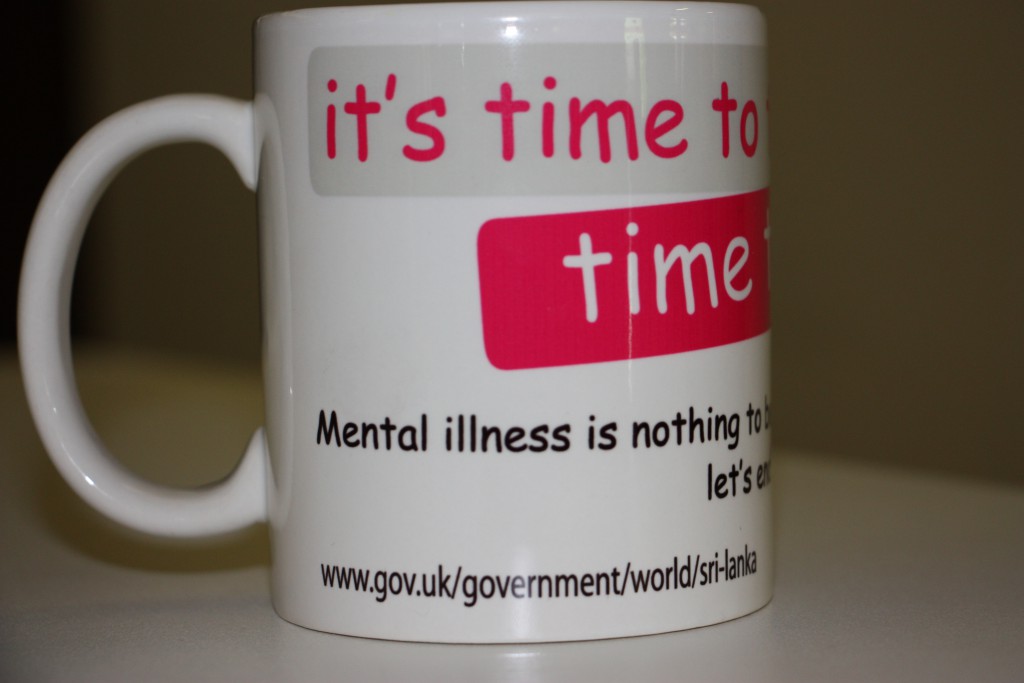Last Friday was World Mental Health Day. The World Health Organisation estimates that 450 million people worldwide have a mental health problem. In the UK, 90% of prisoners have some kind of mental health issue, as do 10% of children. Sri Lanka has the fourth highest per capita suicide rate in the world. Globally, one in four of us will be mentally unwell at some point.
As Dr Jayamal De Silva of Sri Jayewardenepura University said to me, We all know we should look after our bodies, why don’t we also look after our brains?
Here at the British High Commission, we supported Time to Change, the UK’s most ambitious programme to end discrimination around mental health problems, and made a reality of their hashtag #timetotalk, both internally and externally.
First, we looked at mental health and tourism. Sri Lanka is a deservedly hugely popular destination for tourists. In the first nine months of 2014, over a million tourists visited Sri Lanka. In August alone, the country welcomed over 15,000 Brits. Most of these will have a wonderful and trouble free holiday. But as a quarter of us suffer mental ill-health at some point in our lives, this will obviously sometimes happen on holiday too.
This week, the High Commission’s Consular team are providing assistance to two British
But the sooner people get help, the better. So, with our partners at the Colombo South Teaching Hospital, we arranged a training session for tourism professionals and immigration and prison officials. With greater understanding of the symptoms and risks around mental ill-health, tourism professionals are more likely to be able to respond appropriately to individuals in need. There are also risks for tour guides and drivers, and the doctors explained how their employers can help keep them safe.
Back at the High Commission, we held a Tea and Talk event: tea, short eats and an opportunity to talk to colleagues about our own experiences of mental health. It was an easy way to learn a bit more about each other as people while also breaking down some of the stigma associated with mental health. The most important message was that most people with mental health problems can get better. Treatment and recovery take time. The first step is getting help, both for sufferers and for those supporting them.
If you have mental health issues, here are some easy steps you can take to help prepare for a trouble free holiday. And even if you don’t, here are some things you should Know Before You Go anyway.
It’s time to talk, it’s time to change.

